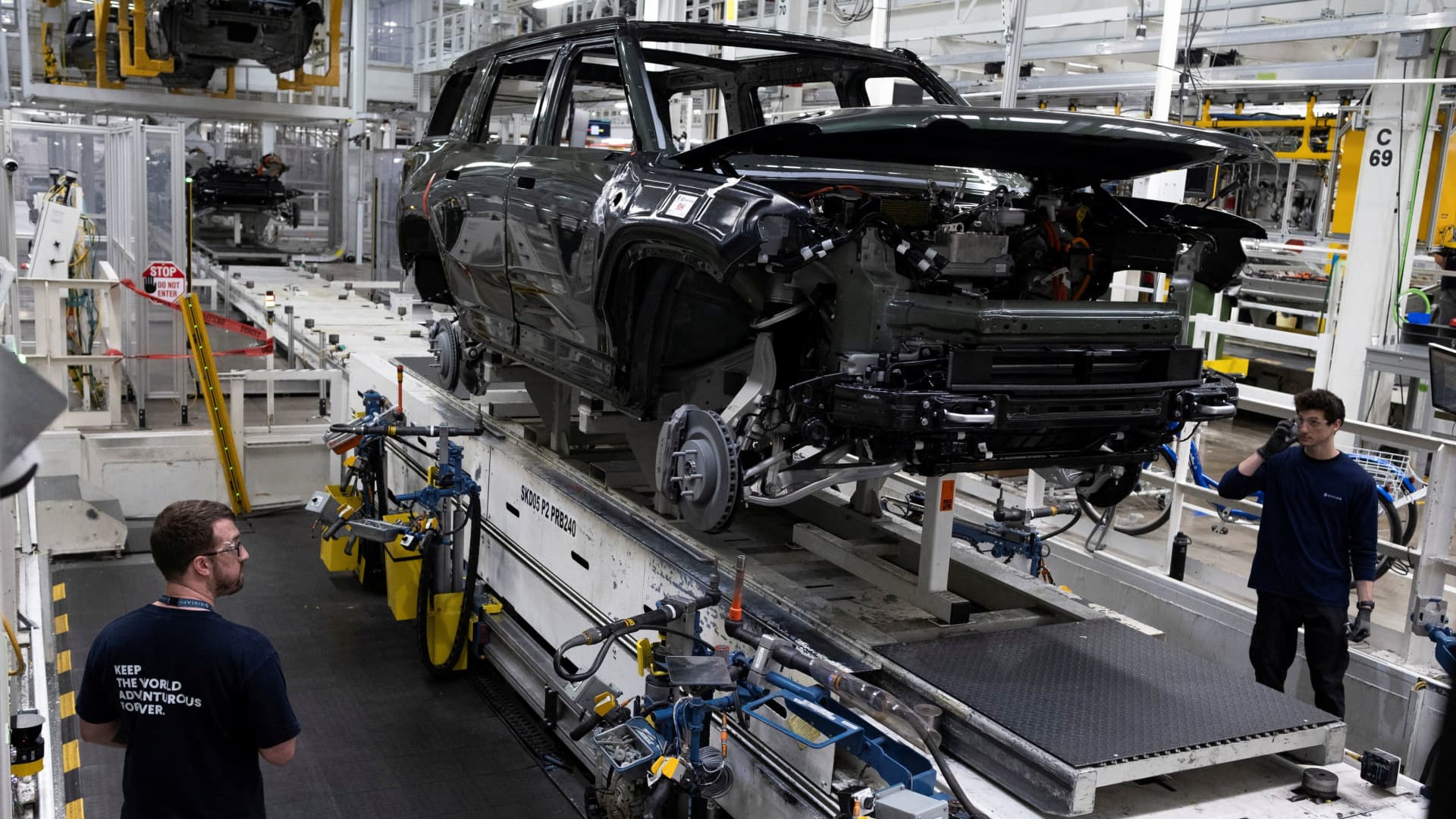Automotive factories throughout the United States and around the world are not producing nearly as many cars as they need to in order to be profitable. A mixture of factors are driving down productivity, but two stand out.
First, new car demand simply hasn’t snapped back to pre-pandemic levels. A record 17.5 million cars sold in the U.S. in 2016, according to forecasting firm GlobalData. That trickled down to about 17 million by 2019. But in the pandemic, the number plummeted to a 2022 low of 13.8 million. Those sales have only partially recovered â and are expected to be just shy of 16 million units in 2024.
High prices are keeping customers away or sending them to used markets, said GlobalData’s Global Vice President of Automotive Research Jeff Schuster.
“That cost pressure isn’t necessarily going to fully go away, which is why we don’t believe demand is going to get back to where it was,” he said.
The second factor is the transition to electric vehicles.
The market of electric vehicles was supposed to bloom in the 2020s, and it just hasn’t occurred to that level yet,” said Sam Fiorani, vice president of global vehicle forecasting at AutoForecast Solutions. “We have all these plants that are ready to build 200,000 or 300,000 electric vehicles and nobody to buy them. So we’re waiting for the market to show up.”
Automakers face a puzzle they have never encountered before â designing vehicles, supply chains and factories to accommodate multiple powertrains.
For more than a century, nearly all cars ran on gasoline. Automakers were hoping for a clean jump to a world where all cars ran on batteries. But the transition to electrification has been a lot messier than expected.
“I’ve been at this for over 35 years,” said Michael Robinet, executive director, automotive consulting, at S&P Global Mobility. “I can never remember a period like this â with so many possibilities up in the air that could really change the trajectory of the industry.”
Watch the video to learn more.

